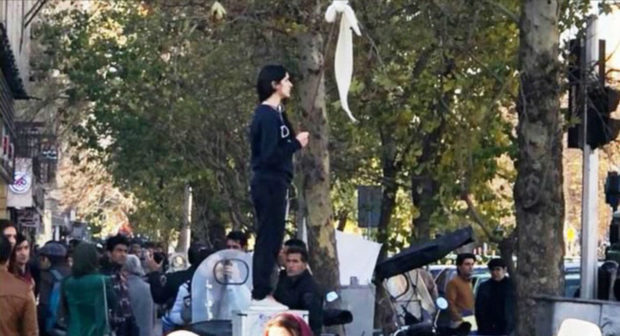In life’s most difficult moments, I have sometimes taken comfort from the notion that no matter what else can be taken from you, your mind is your own.
Whatever ‘piece’ of you others want to extract, they can’t steal the spirit that fuels you. Outside, you can be despised, derided or imprisoned. Inside, you are understood perfectly. There are no walls, no bars, no limits to what you can achieve, and no key can unlock your door unless you hand one over.
It is a powerful space, an infinity that stretches to unknown depths, a place of unquantifiable resources whose potential is never quite quenched.
The thought occurred to me again last week when I read that Pakistani woman, Asia Bibi, had finally been freed by a court. Asia, a Christian farm worker, became an international human rights symbol after an incident in 2010, in which she drank from the same cup as fellow Muslim workers.
They demanded she convert. She refused. In the ensuing argument, she was accused of insulting the prophet Muhammed, subsequently becoming the first woman to be condemned to death for blasphemy in Pakistan.
Asia has been kept in solitary confinement in a cell measuring 10ft by 8ft: the size of a garden shed. In there, the only horizon is the one the mind can take you to.
There is something very moving about the courage that accompanies conviction.
In Iran, a movement called White Wednesday has emerged, in which women wear white clothing on Wednesdays to protest against compulsory headscarves. Until the rise of Ayatollah Khomeini, Iranian women wore Western-style clothing. Now, they face anger and insults – mainly male – if they go out uncovered.
In video footage of protests, one young woman stands aloft in a Tehran Street, long dark hair flowing free as she stares impassively into the distance, silently waving a streaming white scarf on a flagpole while crowds gather to watch. There is something very beautiful about her: a mental strength, a determination to be free in a regime that demands obedience.
What makes so many human beings demand conformity? And why do so many male-run establishments and institutions demand authority, require the tree branch to break rather than bow gracefully? The pictures from Pakistan show crowds of men, outraged by Asia’s release, demanding that she hang. There is ugliness in extremity, in the need for others to think just as you do, for the walls of their minds to be painted the exact colour of yours.
One of the most moving images of White Wednesday was the Iranian woman whose defiant eyes filled like deep pools of pain when she mentioned her father. The father who came to see his child in jail and kissed her through prison glass. On release, she fled across the Turkish border, trying to imprint final images of her country on her mind. Her country, yet she could never return. A father and daughter separated by a wisp of cloth. A life sentence and a death sentence.
How much her father’s affirmation must have meant in prison. The bravery of oppressed women is matched by that of the men who support them. Sometimes, as a woman, it is easy to feel bitter. Who cares? Economic sanctions have been placed – rightly – on countries because of their arms stockpiles or in the case of South Africa, their treatment of black people. But women around the world are regularly imprisoned, beaten, raped as instruments of war or simply socially oppressed.
Would, for example, sanctions be taken against Saudi Arabia – or is their oil more important than their treatment of women?
But it is uplifting when men and women join together in their common humanity. The mayor of Asia’s town spoke out in her defence. For doing so, he was killed by one of his own bodyguards because his stance was perceived as anti-Muslim. In Western terms, being freed by courts would be part of a democratic process. In Pakistan, the male judges who freed her are now under threat of death, targets of extremist hate. People power in its most repugnant form.
If people power causes the oppression of women in countries like Pakistan and Iran, people power must also free them. This Wednesday, I will wear something white. A token gesture? Perhaps. But it is a sign of solidarity with women across the world whose freedom has to be fought for, whose courage takes my breath away.
It will also be a sign of solidarity with progressive men: the men who freed Asia, the man who died for her, and not least the men who shape their daughters to be strong, and kiss them through glass when they are. I don’t have to be brave to protest and the poignancy of that is a stark reminder of my privilege in having a voice, a voice that people may disagree with but don’t kill me for. So, I will wear white next Wednesday because I care – and simply because I can.
Catherine Deveney is an award-winning investigative journalist, novelist and television presenter

